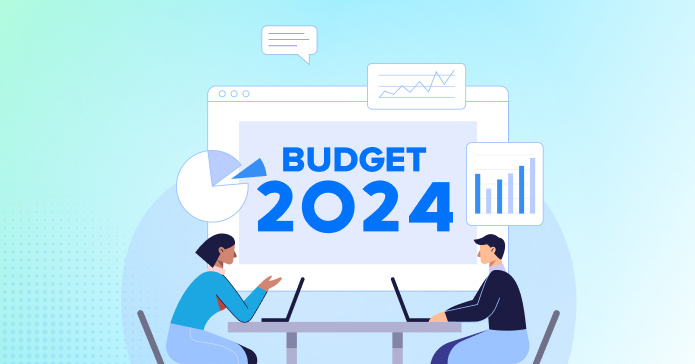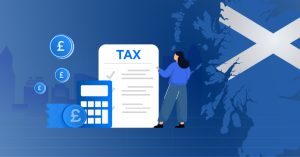Did the Chancellor deliver the highly anticipated tax cuts? That is in your hands to decide
The Spring Budget for 2024 has just been announced by the Chancellor of the Exchequer on March 6th, and it has caused quite a stir in the political world. With heated discussions and debates taking place in the House of Commons, there is much speculation about what this budget means for the future of the country.
One of the major focuses of this budget is on promoting economic growth and reducing inflation rates. The Chancellor, Jeremy Hunt, has promised to bring inflation down below 2% in a matter of months, which will have a positive impact on the overall economy. This will also pave the way for future tax cuts and reduced borrowing, which are highly anticipated by the public.
VAT Threshold Increase
The VAT threshold is increased from £85,000 to £90,000 per year. According to the chancellor, this will save more than 100K businesses across the UK from paying VAT, in other words, hundreds of thousands of SMEs will be outside of VAT. This increase will be effective from 1 April 2024.
Fuel Duty Freeze
As opposed to the mayor of London, Sadiq Khans highly controversial ULEZ, the Chancellor announced that the 5p fuel duty freeze is extended for another 12 months, meaning the contractors, sole traders and vehicle owners would dodge a 13% fuel increase. According to the Chancellor, if he hadn't maintained the fuel duty freeze, the sole traders would have to pay much more duty fees than it is on top of ULEZ.
Cost of Living Crisis
Considering around 1 million households around the UK are on Universal Credit, the Chancellor froze the Loan Repayment period from 12 months to 24 months to help tackle debt in households.
Capital Gains Tax Reduced
The Chancellor reduced capital gains tax from 28% to 24%, in an attempt to increase the overall revenue.
Alcohol Freeze Duty Extended
One of the most exciting announcements for hospitality in the November 2023 Budget was the Alcohol Duty Freeze until August 2024. Jeremy Hunt took the freeze a step further and announced that the alcohol duty freeze is extended until February 2025 with big cheers from over 38 thousand pubs across the UK, struggling with the current rising prices. In doing so, the chancellor is expecting to make an average pub a £13K saving a year.
Non-Doms Tax System Abolished
One of the most disputed reforms that the chancellor delivered as part of the Spring Budget 2024 is abolishing the Non-Dom tax for 4 years to encourage foreign investment by £2.7 bn a year in the UK. The reform is disputed heavily by the opposition and the back benches as it contradicts the chancellor's general opinion about immigration-based economic growth.
National Insurance Contributions Cut
The Chancellor, taking exemplary cases from North America and Asia, pointed out that the lower the tax higher the workforce announced that NIC is cut by a further 2p and decreased from 10% to 8% for employees on PAYE and from 8% to 6% for Self-employed individuals.
In doing so the chancellor stated that this will make an average employee save a further £450 a year £37.5 more money a month and an average self-employed save £350 a year.
Adding up to the cuts made in November 2023, in total an average employee in the UK will save around £900 a year and a self-employed will save around £650 a year from 6 April 2024.
Making it the biggest tax cut since 1975 in the UK.
Stamp Duty Relief
The Chancellor has promised to abolish stamp duty relief along with Multiple Dwellings Relief which allowed to buying of more than one property in a single transaction.
Child Benefit Tax Changes
The chancellor pointed out that the Child Benefit Tax is unfair and too complicated and promised to reform it, making "household-based" income rather than parents' individual income thresholds.
Allowing HMRC to collect household information, the child benefit tax will be household-based to be introduced as of April 2026.
From this April the high-income child benefit threshold will be raised from £50,000 to £60,000. The chancellor said the top of the threshold to £80,000, in other words, people who earn below 60K won't have to pay the charge, which means 70 thousand families will be outside of the charge.
This increase in the top threshold is an attempt to save an average of £1300 a household in 2025.
Take a look at the current child benefit tax calculation.
Conclusion
In conclusion, the Spring Budget for 2024 has brought some much-needed relief for businesses and individuals alike. With a focus on reducing inflation rates and promoting economic growth, this budget has delivered significant tax cuts and measures to tackle the cost of living crisis. However, it remains to be seen how these changes will impact the overall economy in the long run. As always, it is important for individuals and businesses to stay informed about tax changes and plan accordingly. So, it is highly recommended to seek professional advice from reputable firms like Debitam. We look forward to seeing how these budget changes will shape the economic landscape of the UK in the coming years.













